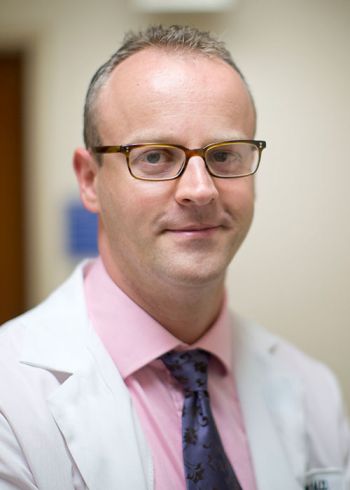
WASHINGTON (July 1, 2015) — Researchers at the George Washington University (GW), led by Michael S. Irwig, M.D., found that men referred for tertiary care for borderline testosterone levels had much higher rates of depression and depressive symptoms than those of the general population.
“In an era where more and more men are being tested for “Low T” — or lower levels of testosterone — there is very little data about the men who have borderline low testosterone levels,” said Irwig, associate professor of medicine and director of the Center for Andrology at the GW School of Medicine and Health Sciences. “We felt it important to explore the mental health of this population.”
The research, slated to publish online on July 1 in the Journal of Sexual Medicine, involved 200 adult men, aged 20-77, with a mean age of 48 years old, who were referred for borderline total testosterone levels between 200 and 350 ng/dL. Information gathered included demographics, medical histories, medication use, signs and symptoms of hypogonadism, and assessments of depressive symptoms and/or a known diagnosis of depression or use of an antidepressant.
Depression and/or depressive symptoms were present in 56 percent of the subjects. Furthermore, one quarter of the men in the study were taking antidepressants and that the men had high rates of obesity and low rates of physical activity. The most common symptoms were erectile dysfunction, decreased libido, fewer morning erections, low energy, and sleep disturbances.
While more research is needed in this area of study, the researchers concluded that clinicians should consider screening for depression and depressive symptoms, overweight and unhealthy lifestyle factors in men who are referred for tertiary care for potential hypogonadism.
“High Rates of Depression and Depressive Symptoms Among Men Referred for Borderline Testosterone Levels” is available at Wiley Online Library.


